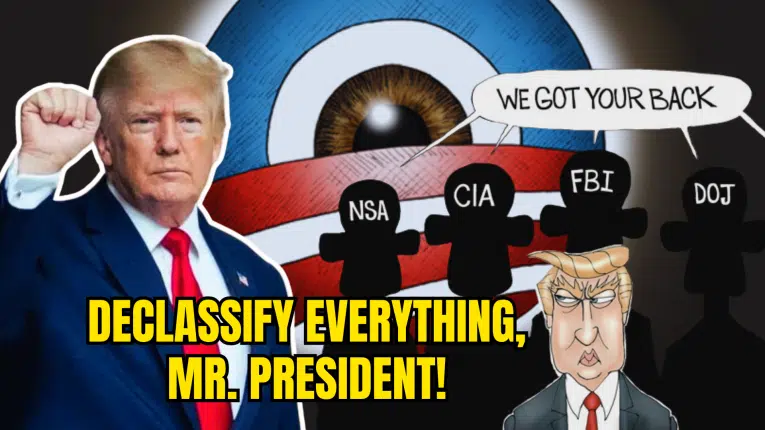
Extortion is an ugly word. It is even uglier when it is the U.S. government holding the gun, even when the victims are some of the least sympathetic one’s found in history — big banks.
The Obama Administration’s Justice Department announced a $16.65 billion settlement with Bank of America over allegations that they sold bad loans to Fannie Mae and Freddie Mac is the ultimate gun to the head deal.
While it is hard to shed tears for B of A, the hard truth is that the company’s leadership was at best encouraged and at worst coerced to take on the failed Countrywide Loan and Merrill Lynch portfolios as part of the government’s response to the credit crash in 2008. The thanks the company has received is non-stop federal government led and encouraged litigation for the actions of the two companies that the Feds begged them to buy to keep the mortgage crisis from getting even worse.
Let me be clear, personally, I have no love for the banksters who preyed on seniors and others with false loan promises that led to many of the bankruptcies that plagued our nation. A quick Google check might even reveal a personal story written a few years back that chronicled my personal fight with one such bank named after a combination of President Lincoln’s Treasury Secretary and the island where the Empire State Building can be found.
However, the extortion of more than $16 billion from Bank of America, because the company made the mistake of doing the nation’s political and economic leaders a favor that was needed to save the nation’s financial system is beyond the pale.
To paraphrase a friend, “this is why big businesses shrug when the IRS targeting of tea party members became public, they have been in this type of targeted crosshairs for years and nobody cared.”
While it is fashionable and even right to denounce the corporate cronyism that seems to pervade D.C., it must be remembered that most corporations pay lobbyists as a defensive move. They don’t expect much of a return on investment, they only hope to stop the government from imposing regulations, taxes or spending that keep them from doing their real jobs.
This process has subsequently evolved whereby some corporations use their acquired clout to encourage regulations that give their company a competitive advantage, or significantly harm the bottom line of competitors.
It is just one reason why the GM bailout and federal government involvement in its management was so troubling. At the same time the federal government was attempting to help right the GM ship, Toyota was accused of a sudden acceleration problem, which they eventually paid a fine to make it go away. Toyota’s federal government problem, directly helped GM’s bottom line as the automaker increased market share at the Japanese company’s expense, a clear conflict of interest for the federal government regulators that created lingering doubts about the veracity of the claim.
Similarly, natural gas producer Chesapeake Energy not only pushed EPA regulations to force public utilities to convert from burning coal to their product, they also gave the Sierra Club $27 million to fund their “Beyond Coal” campaign that promoted the company’s interest.
Chesapeake Energy’s actions are a prime example of a company using government as a weapon against their competitors, and is an indictment of the amount of power to regulate and destroy entire industries. At the same time, with the government having this much power, it is easy to understand why companies throw millions of dollars into public affairs to defend and promote their own interests. Failure to do so, only puts that company at risk from a rapacious competitor, like Chesapeake Energy, that doesn’t have any scruples in its attempt to earn market share through any means possible.
Even an obscure agency like the National Labor Relations Board can destroy entire business models through a single decision, as they are attempting to do through a recent decision that allowed McDonald’s corporation to be held liable for the actions of their independent franchisees. This single decision threatens to end the franchise business model that has been at the center of the explosion of small business ownership.
When you combine this wayward NLRB decision with attempts by the First Lady to force America’s children to eat brussel sprouts at lunch, and Big Labor’s effort to force mandatory wage increases, does anyone still wonder why the restaurant industry not only has a vibrant association representing them, but also individual companies hire bevies of lobbyists? Failure to do so would be a dereliction of their duty to shareholders.
It is that simple, much-maligned lobbyists exist because corporations need them as protectors against the exact kind of extortion that Bank of America faced, or the regulatory death sentenced the EPA is creating for the coal industry.
And the ultimate irony of the Bank of America case is that the bank has been fined not only for taking on companies that the Feds urged them to, they have been fined for writing the exact kind of high risk loans that the federal government required them to write under the Community Redevelopment Act. A deal that the banks accepted over strong protests in exchange for being able to merge financial services, banking and insurance services.
So don’t expect a lot of teary eyed sympathy from the denizens of K Street, as the federal government turns its sights on political activists. After all, their clients have been in survival mode for years.
The author is vice president of public policy and communications for Americans for Limited Government.






